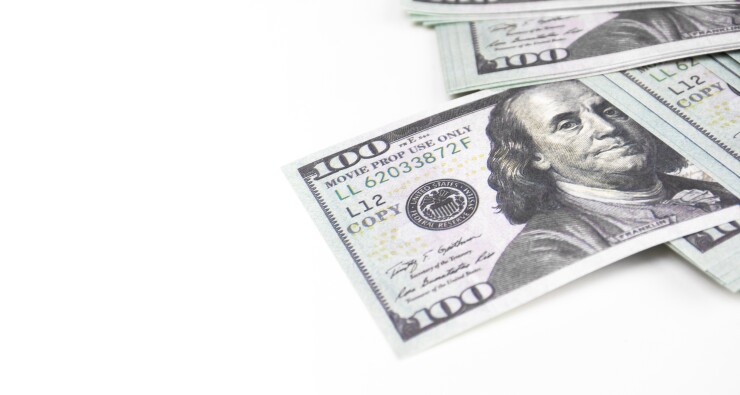Fourteen customers of Independence Bank of Kentucky, headquartered in Owensboro, received fake $100 bills out of the ATM at the bank's Providence branch this month.
The fake bills appeared to be movie or television props, reading on the back "for motion picture purposes" and "in props we trust," according to television station WFIE in Evansville, Indiana, which
Independence Bank did not immediately return a request for comment. In a statement to the TV station, Independence Bank indicated that the error might have been caused by the ATM vendor that manages and maintains the machines, though the bank did not name the vendor.
"Our team took action immediately by closing the ATM and contacting our vendor that manages and maintains our machines," reads a statement from the bank published by WFIE.
An Independence Bank customer told WFIE that the fake bills were only $100 bills, not other denominations.
The bank, which had $3.7 billion in assets as of June, closed the ATM when it learned over Labor Day weekend that it was providing prop $100 bills. The bank contacted the vendor that manages and maintains the machines, according to a statement the bank provided WFIE.
"We began directly contacting the 14 people inconvenienced over the holiday weekend and have started the process of ensuring they receive proper bills," the statement reads. "We apologize for any inconvenience and will continue to work with our ATM vendor and our customers to assure corrective action."
Diebold Nixdorf is using artificial intelligence to spot trouble proactively — a move that has already increased ATM uptime by up to 3.5%.
Though rare, customers
On the other side, bankers have also reported customers making
Another user responded that a newly installed ATM dispensed fake bills after the ATM vendor left test money in the machine.
Regulation E, which governs rights, liabilities and responsibilities in electronic fund transfers, lays out the procedures a consumer and bank must follow in
Consumers have 60 days to provide written notice of the error to the bank. The bank then has 10 days to investigate the matter and respond to the customer. The period is extended to 45 days if the bank provisionally credits the consumer's account.
The Federal Reserve







